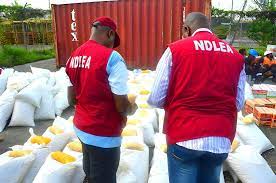EXERCISE OBANGAME, an at-sea naval exercise focused on counter-piracy and maritime security operations ended in Nigeria recently. JIBRIN BABA NDACE reports
For two weeks, maritime professionals from West Africa, Europe, South America and the US gathered in the Nigeria maritime domain for the 5th edition of the OBANGAME EXPRESS 2014 naval exercise.
Launched as a major programme in the maritime calendar for the Gulf of Guinea countries, this year’s exercise focused on increased maritime safety and security in the region and includes navies from 22 nations.
As in the past exercises, this year’s OBANGAME offered participants opportunity to test maritime skill sets, including at-sea ship boarding and queries, air operations, communication drills and regional information sharing.
Obangame Express 2013 took place in the same month in in Doula, Cameroon. It involved 12 ships from ten nations, with training in a number of maritime scenarios.
Speaking on the positive impact of previous exercises, Nigeria Western Naval Command flag officer commanding, Rear Admiral Samuel Alade said Obangame Express has improved security within Nigeria’s maritime domain and the wider Gulf of Guinea area.
“We have been able to use the acquired capacity to improve security within our maritime domain and the wider Gulf of Guinea area.We have been able to use the acquired capacity to improve security within our maritime domain, in particular, and the wider Gulf of Guinea maritime area,” Alade said.
OBANGAME has been sponsored by United State Government and AFRICOM aimed at enhancing capabilities with the Gulf of Guinea in deterring counter-piracy, counter illicit trafficking, and other maritime threats.
Obangame Express exercise director, assigned to US Naval Forces Europe-Africa/US 6th Fleet, captain Nancy Lacore said: “Our role is to support Gulf of Guinea nations as they share their knowledge.”
Participants in Obangame Express 2014 were Angola, Belgium, Benin, Brazil, Cameroon, Cote d’Ivoire, Denmark, Equatorial Guinea, France, Gabon, Germany, Ghana, Italy, Netherlands, Nigeria, Portugal, Republic of Congo, Sao Tome & Principe, Spain, Togo, Turkey, and the US.
In his remarks at the closing ceremony of the exercise, the Chief of Naval Staff, (CNS), Vice Admiral Usman Jibrin said he was pleased that Nigeria hosted the Exercise for the second time within five years of its existence. He said the exercise was aimed at combating myriad of security challenges within Gulf of Guinea.
“ it is pertinent to note that, in our contemporary world, the maritime environment is increasingly threatened by a myriad of security challenges such as piracy, smuggling, illegal bunkering, crude oil theft and other transnational crimes. Exercise OBANGAME EXPRESS is this aimed at assisting West and Central African countries to build the capacity to combat these challenges. ”
The Chief of Naval Staff that the exercise has lived up to it s expectation and hoped that subsequent exercise would build on the 2014 edition.
“On the conduct of the exercise OBANGAME EXPRESS 2014, the exercise debrief has revealed that in spite of the few challenges we have had, we have definitely made significant progress as far as the objectives of the exercise are concerned. Thus , Exercise OBANGAME EXPRESS 2014, like those before it, has lived up to its expectation. It is hoped that subsequent editions of the exercise would continue to build on the successes of this year’s edition.
“ I wish to state that the Nigerian Navy remains committed to the ideals of Africa Partnership Station and its subsidiary programmes, including exercise OBANGAME EXPRESS ”
The 2013 Exercise OBANGAME EXPRESS 2013 ( OE-13) which held in Cameroun, provided African, European and Atlantic partner maritime services the opportunity to work together, share information and refine methods in order to help Gulf of Guinea maritime nations better monitor and enforce their territorial waters and exclusive economic zones.
Speaking at the exercise, Commander, United Stated Africa Command, General Carter. F. Ham said maritime partnerships and maritime security and safety are important to the Gulf of Guinea.
“Over the past week, the participants in this exercise conducted training which improved the interoperability between maritime forces of the participating nations, as well as the skills of individual Sailors.Maritime partnerships and maritime security and safety are increasingly important in the Gulf of Guinea region to combat a variety of challenges including maritime crime, illicit trafficking and piracy.”
The exercise included a wide variety of training for all participating forces including at-sea ship boarding and queries, air operations, communication drills and regional information sharing.
“Obangame Express helps promote relationships between nations to combat these illicit activities in the Gulf of Guinea,” said Capt. Dave Rollo, U.S. exercise director for OE-13. “These acts of piracy are not just an American problem. They are not just a Cameroonian problem; They’re a global problem.
“Our naval forces must effectively strengthen the intervention capacity, using maritime surveillance systems and reliable equipment,” said Mebe Ngo’o Edgard Alain, Cameroonian Minister Delegate of the Presidency in charge of Defence. “The required harmonization of operational procedures of multinational players involved in securing the Gulf of Guinea guarantees the effectiveness of our naval forces in maintaining maritime security and safety.”
“Maritime security is a pre-requisite for attracting investment, promoting trade and continuing economic development,” said Alain. “These things guarantee an improved quality of life for our citizens.”



